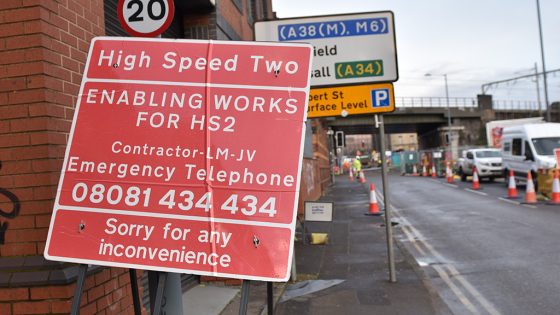Closing HS2’s cancelled second phase will cost £100m and take three years despite no major construction work ever taking place, a watchdog has said.
Works already started are likely to take until summer 2027 to reverse, a report by the National Audit Office (NAO) concluded. More than 1,000 boreholes have been drilled, many of which will now have to be filled in to restore the land.
The report, commissioned to evaluate the response to the cancellations, found that the Department for Transport (DfT) and HS2 Ltd were still working out how to limit the cost of cancelling a major slice of the megaproject. Publication was delayed until after the election to avoid breaking impartiality rules.
Mace and Dragados’ station at Birmingham Curzon Street will be built but the joint venture will not fit out four of the initially planned seven platforms, as only three will be needed for the truncated service.
Some work at the Euston site could continue while the DfT works out how to progress the scheme, although the NAO wrote that the department expects it could take years to establish a development corporation and bring in private finance.
The report said the DfT and HS2 had made renegotiating the four main construction contracts on phase one a key plank of the plan to limit costs, as “contractual incentives to control costs and improve productivity have not worked as intended”.
Both organisations acknowledged that it would be difficult to renegotiate major contracts already in progress.
Neither body agrees on the costs of completing phase one and intend to appoint an external party to advise them.
The DfT has also not yet worked out how to dispose of £592m worth of land it no longer needs.
A spokesperson from High-Speed Rail Group, a membership body for firms involved in the project, said the report made clear that the HS2 plan inherited by the new Labour government would not “help grow the national economy” or “allow train performance on the west coast to return to acceptable levels”.
It said: “Done properly, high-speed rail can stimulate growth in our regional economies. Sadly, as this NAO report demonstrates, the current plan falls far short of this objective.”

